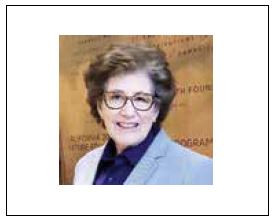
By Dr. Marcy Adelman–
Even though the eviction moratorium in San Francisco has been extended to November 30, with further legislation pending to extend it to December 31, evictions and the threat of evictions have continued. The moratorium does not apply to non-payment cases, Ellis Act cases, or cases involving violence or public safety.
Legal Assistance to the Elderly (LAE) has quietly and effectively been providing free legal assistance for over 40 years to low-income seniors and adults living with disabilities in San Francisco. I asked Laura Slade Chiera, Executive Director, about LAE’s services during the pandemic. She told me for the San Francisco Bay Times: “We received requests for help protecting against physical abuse, assistance with unemployment, and evaluating early retirement, rent payments, and questions about accessing health care benefits. But the largest percentage of calls by far are about evictions or fear of eviction.”
“Many of the calls are from those who are most vulnerable,” she added. “For example, a disabled and a monolingual Spanish speaking trans woman in her late fifties received an Owner Move-In eviction notice. She had been in her apartment for 11 years and had been paying her rent throughout the pandemic. She went all winter without any heat in her apartment, despite repeated requests for the landlord to fix it. On top of all this, she faced harassment from the building manager, who would make transphobic and racist comments to her and her friends, as well as harass them about their immigrant status. During this stressful period, a roommate left who helped pay the rent. And a surgery that kept her from working resulted in trouble meeting the rent. She was feeling hopeless and scared about her future.”
“She came to us for help,” Chiera continued. “Faced with a defense based on retaliation for requesting repairs, the landlord rescinded the Owner Move-In eviction. LAE was able to secure the client rental assistance during this time, and with the eviction threat gone, the client was able to get a new roommate to help pay the ongoing rent. The landlord has been making the needed repairs at reasonable times of the day and our client’s life is back to normal.”
LAE’s clients are as diverse as the city itself: Black, Indigenous, Latinx, API, LGBT, seniors, and people living with HIV. LAE is a nonprofit on the front lines, keeping people from falling into homelessness by helping people stay in their homes.
Chiera said, “A large number of calls have been from people living in SRO or single room occupancy hotels. SROs units are small, rented, furnished rooms in multi-tenant buildings where tenants share a kitchen, toilet, and bathroom. Tenants are afraid of what could happen to them if they should be evicted in the middle of a pandemic.”
She continued, “At the beginning of the pandemic, it was especially hard on people living in the SROs. People were encouraged to stay in their room. These rooms are 8 by 8. It was challenging to get food or any in-home care. You can understand what a stressful environment this was and how it would impact a person’s physical and mental health.”
“It also was a challenging time for staff,” she added. “Despite the health risk to our older clients, we still were required to make personal appearances at court and hearings. The staff were worried about their clients and themselves. It was very stressful. But we got through it together.”
Chiera has been LAE’s Executive Director since 2016. Under her leadership, LAE has increased its budget, tripled its staff, and, consequently, increased its impact on vulnerable seniors in San Francisco. Although the majority of cases are centered on housing preservation, LAE has several other practice areas that include helping seniors and disabled adults who experience debt collection problems; problem with scams; physical or financial abuse; and assistance with issues related to Medi-Cal, Medicare, and In-home Supportive Services. Also, LAE, in collaboration with the AIDS Legal Referral Panel, provides end of life planning for LGBTQ older adults and adults with disabilities in need of a basic will and health care directives.
Over the last year, LAE opened approximately 1550 new cases. Because so many of their clients do not have access to technology services such as Zoom, they expanded their mobile services, meeting clients at their homes and exchanging documents through the mail. They also worked closely with the Latino Task Force COVID-19 response hubs in the Excelsior and Bay View neighborhoods providing housing legal services.
Chiera concluded, “It is too easy to get cynical about the problems facing the city. It is important to reflect that the people we serve built this city and now it is our turn to help them. You can have worked your whole life but still not be able to keep up with rising rents. The city needs to expand housing subsidies and provide more affordable and accessible in-home services and healthcare. San Francisco can do this.”
Legal Assistance to the Elderly: https://laesf.org/
AIDS Legal Referral Panel: https://tinyurl.com/575xs89h
Dr. Marcy Adelman, a psychologist and LGBTQ+ longevity advocate and policy adviser, oversees the Aging in Community column. She serves on the California Commission on Aging, the Board of the Alzheimer’s Association of Northern California, the California Master Plan on Aging Equity Advisory Committee, and the San Francisco Dignity Fund Oversight and Advisory Committee. She is the Co-Founder of Openhouse, the only San Francisco nonprofit exclusively focused on the health and well-being of LGBTQ+ older adults.
Published on October 21, 2021
Recent Comments